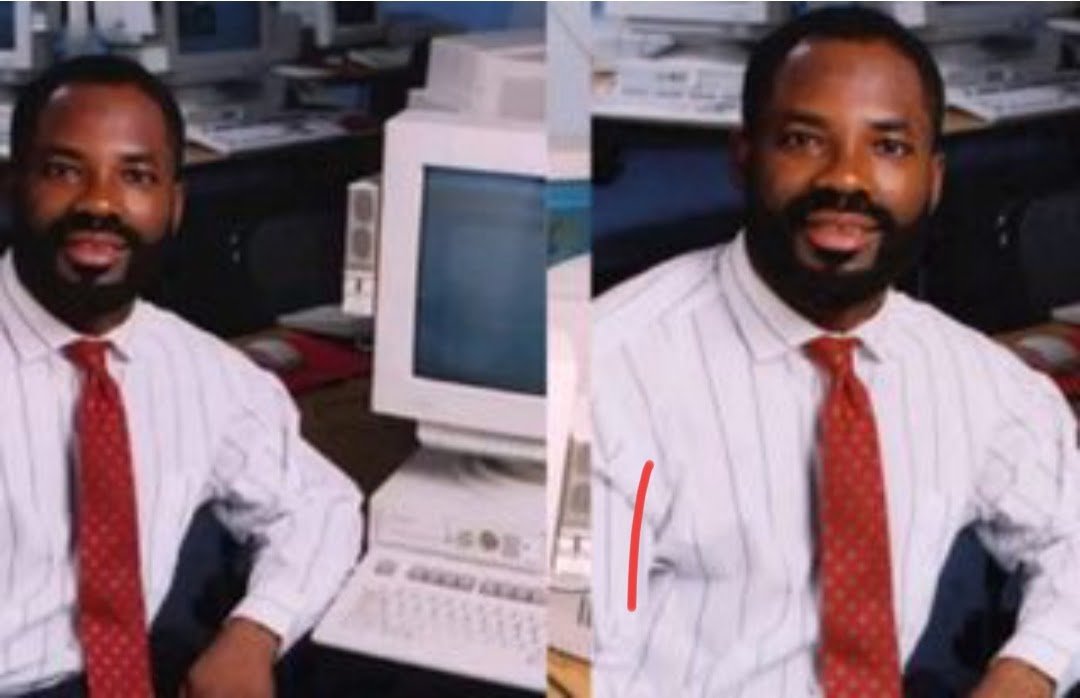A young Nigerian named Philip Emeagwali, also known by the moniker Calculus, has received praise for his astounding creation.
The smart young man received the Gordon Bell Prize in 1989 for creating high-performance computing programs that modeled oil reservoirs using computational fluid dynamics.
He had mastered mathematics by the time he was just 14 years old and could even out-calculate his teachers.
But he had to leave school because of money issues. Despite the difficulties, he persisted in his studies.
The University of London awarded him a general certificate of education as a result.
Philip was given a full scholarship to Oregon State University when he was 17 years old, where he majored in mathematics.
After graduating, he earned two master’s degrees from George Washington University, one in marine engineering and one in civil engineering.
In addition, he earned a Master’s degree in mathematics from the University of Maryland. He later graduated with a Ph.D. in civil engineering from the University of Michigan.
Philip’s most notable accomplishment was The Connection Machine, for which he created a program that resolved a 350-year-old packing problem that, as of 1989, was regarded as one of the most difficult unsolved mathematical puzzles.
The Connection Machine, the first supercomputer in history, used 65,000 parallel-connected computers to create the world’s fastest computer.
It was capable of more calculations per second-3.1 billion-than the Cray Supercomputer’s theoretical peak performance.
Philip then created the Hyperball computer, which could predict long-term trends in global warming.
Read Also: JAMB 2022: JAMB Cut Off Marks For All Universities, Polytechnics [See Full List]
The internet’s current capabilities are said to have their roots in the technology Philip created.
FAQs:
Who is Philip Emeagwali?
Philip Emeagwali is a Nigerian-born computer scientist and engineer, often celebrated for his contributions to high-performance computing. Despite early academic challenges, including dropping out of high school due to financial hardship during the Nigerian Civil War, he later earned advanced degrees in mathematics and computer science in the United States.
What is Philip Emeagwali known for?
He is best known for utilizing a system of 65,536 processors to perform 3.1 billion calculations per second, solving a petroleum reservoir modeling equation. His innovative use of a “hypercube” structure for massively parallel computing is considered a key breakthrough that influenced the design of modern supercomputers.
Did Philip Emeagwali really invent the first supercomputer?
While he did not invent the first supercomputer, Emeagwali’s 1989 work demonstrated the practical application of massively parallel computing—a concept critical to modern supercomputing. He won the Gordon Bell Prize from the IEEE for this achievement, validating its significance in the field of computational science.
How did Emeagwali overcome dropping out of school?
After dropping out due to the Nigerian Civil War, he was largely self-taught during his early years. He later won a scholarship and moved to the U.S., where he earned multiple degrees, including a Ph.D. in scientific computing from the University of Michigan (although this degree has been debated, he did complete significant academic work).
What impact has Philip Emeagwali had on technology and Africa?
Emeagwali has become a symbol of African innovation and resilience. His success story has inspired many in science and technology fields, especially across Africa. His work helped shape ideas used in internet technology, weather forecasting, and oil reservoir modeling, reinforcing Africa’s potential in the global tech space.






This information is inspirational for others to advance in life. Congratulations.
This is bogus. Find documentation that he did not write.
He is a charlatan and con artist. The internet started in the 1960s. He had nothing to do with it. He has never invented a computer. Please verify before posting.